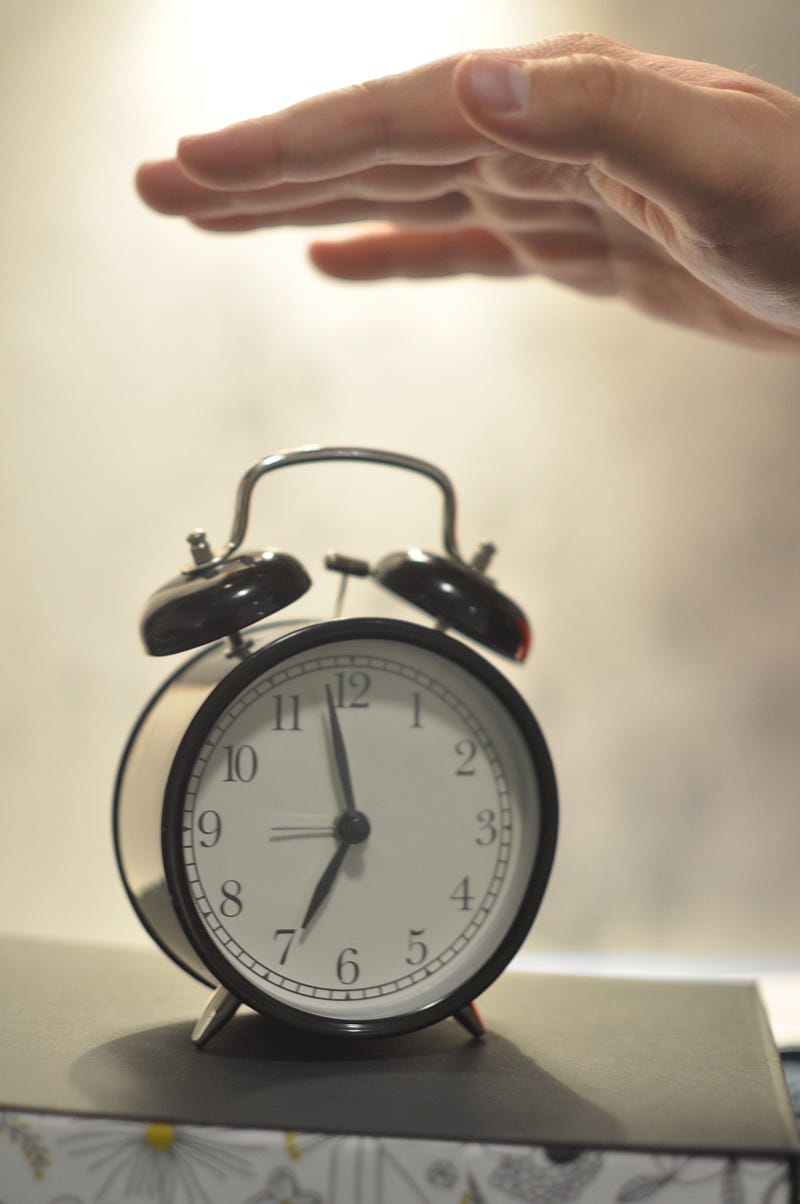The Myth of Waking Up Early: Why It’s Not the Only Path to Success
Written on
The Case Against the “5 AM Club”
Contrary to popular belief, joining the “5 AM Club” isn’t the sole route to achievement. Rising early doesn’t automatically correlate with being productive. Regardless of what hustle culture promotes, true productivity hinges on accomplishing tasks efficiently. If you’re awake for 16 hours, does it really matter if those hours are early in the morning or late at night?
Why Early Rising Is No Longer Crucial
In a pre-electricity era, waking up early was essential for maximizing productivity during daylight hours. Our ancestors lived in agrarian societies, relying heavily on natural light for survival. However, with the advent of electricity, the necessity to rise at dawn has diminished—unless, of course, you are a farmer.

Each Individual's Circadian Rhythm
While some people claim that waking early enhances their productivity, this applies mainly to “morning people.” Not everyone is predisposed to excel during conventional business hours. For instance, I find my peak energy and focus late at night. Why squander my most productive moments just to adhere to societal expectations? When I start my day at 10:00 AM, I accomplish significantly more than if I began at 7:00 AM. Early mornings often render me less creative and more prone to errors.
As noted in a Fast Money article, the conventional workday may favor early risers, yet your chronotype—your inherent sleep pattern—largely dictates your morning productivity. Not every bird rises with the sun, hence the term “night owl.”
Quality Sleep Trumps Early Rising
Waking to a jarring alarm is one of the most unpleasant experiences of my day. This abrupt interruption of deep sleep leaves me groggy throughout the day. Research from Medical News Today reveals that sleep disruption negatively impacts mood more than a lack of sleep itself. Personally, I've observed that fragmented sleep leads to persistent exhaustion.
Allowing your body to awaken naturally is much healthier. As explained in Business Insider, melatonin plays a crucial role in regulating our sleep-wake cycles. Waking up without an alarm promotes higher energy levels and productivity. Conversely, waking to a disruptive alarm can pull you from sleep prematurely, leading to an energy deficit throughout the day.

In the previously mentioned Fast Money article, sleep expert Michael Breus suggests embracing your chronotype instead of forcing yourself to mimic early risers, who constitute only about 15% of the population. Approximately half of individuals have “normal” sleep patterns, thriving when they maintain a consistent schedule without staying up too late or rising too early. Breus identifies naturally late risers—around 20% of the population—as wolves, who often find their productivity and creativity peak at night.
Changing Perspectives on Work Hours
The global pandemic has normalized remote work, leading to more flexible schedules. Employers are beginning to recognize that productivity doesn’t require adherence to rigid hours. While not every position allows for this flexibility, Stanford News reports that about 42% of the U.S. workforce has engaged in remote work during the pandemic. Many tasks can be accomplished outside traditional hours, allowing for greater independence.
One positive outcome of this pandemic is the potential shift in conventional work hours to accommodate diverse work styles, resulting in a more effective workforce.
Wrapping It Up
Shouldn’t the quality of my output take precedence over the hours I keep? For night owls, early rising can feel torturous. The “5 AM Club” caters primarily to natural morning individuals. If you’re not one of them, there’s no need to resist your natural rhythms.
Imagine a world where business hours run from 5:00 PM to 1:00 AM; the productivity of night owls could surge. Why should business hours cater only to 15% of the population when a larger segment thrives at night?
By aligning work with our natural productivity cycles, we can unlock our full potential. Let’s redefine achievement in a way that embraces individual differences. The pandemic may have opened the door to this much-needed change.
The first video titled "Waking up early is easy (if you follow this technique)" discusses strategies for effective early rising but challenges the necessity of this habit for everyone.
The second video, "The Simple Truth About Why You Struggle to Wake Up," explores the reasons behind waking difficulties, emphasizing individual sleep patterns over societal expectations.